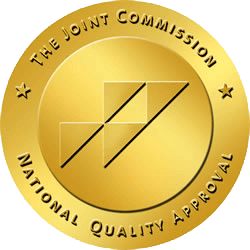We’ve heard of teens obsessed with video games and seemingly cannot do anything else. Is this a sign of obsessive-compulsive disorder (OCD)? Although sometimes, it can just be a passion or enjoyable pastime, some teens genuinely do suffer from OCD. Psychology Today even suggests video games can irritate OCD symptoms. If your teen is showing signs of OCD, Destinations for Teens is here to help. Our teen OCD treatment program strives to help teens manage their behaviors to live productive lives. With a supportive team of medical and mental health practitioners, peer support, and various therapeutic services, your family will never wonder how to approach OCD treatment. Instead, your teen and your family will understand the disorder and how to treat it effectively. Call 877.466.0620 today to learn how Destinations for Teens can help your teen manage OCD symptoms.
What Is Obsessive-Compulsive Disorder?
Obsessive-compulsive disorder is a condition that attracts teens to a specific obsession or fear. They consistently repeat a particular behavior uncontrollably. Examples of OCD include:
- Cleanliness – This type of OCD speaks to people’s fear of germs. As a result, they will wash their hands repeatedly or clean more than expected.
- Checking for reassurance – It makes sense to check for safety. However, when a teen constantly checks a stove or a locked door, it can indicate a fear of danger. Teens with this type of OCD will check their appearance repeatedly before feeling confident enough to leave their homes. They might also check their schoolwork so much that they never hand it in for fear of making a mistake. This type of OCD can lead to social isolation and poor academic performance.
- Collecting and hoarding – Another common OCD is keeping items. Teens will hoard food, clothes, books, and other items that they believe they need. When teens obsess over throwing things away, they fear that something will happen if they don’t have the item. This thinking can lead to self-isolation and withdrawn behavior as teens are in a cluttered space that is not inviting to others.
Signs of Teen OCD
What happens when a teen’s need to be successful becomes overwhelming and becomes focused on minutia? After learning what obsessive-compulsive disorder is, parents have to move beyond the definition and focus on some of the glaring signs and symptoms. Pay attention to these signs of OCD that are often present in young adults:
- Behaving compulsively or obsessing over ideas or topics so much that it impacts their ability to function in their daily lives
- Spending considerable time on simple tasks and being extremely afraid of making a mistake
- Significant obsession over specific ideas, topics, trends, or fads with no ability to understand other perspectives
Get Treatment for Obsessive-Compulsive Disorder at Destinations for Teens
Although OCD is not curable, there are ways of supporting teens who possess this disorder. Treatment is essential for teens because mental health practitioners can provide therapies that will help them effectively cope with their condition. In addition, teens attending a treatment program can also discover if they struggle with other disorders such as anxiety and depression. Understanding obsessive-compulsive disorder allows parents to define and identify this challenging concept effectively. The next step is finding the proper treatment so that teens can live healthy lives. OCD is not an easy condition with which to live. There is a magnitude of shame and fear associated with the behaviors associated with this condition that everyone does not always understand. Destinations for Teens can provide the support your young adult needs to overcome OCD. Contact us at 877.466.0620 to help your teen live a healthy, happy life.


